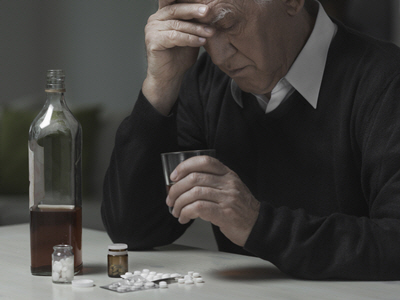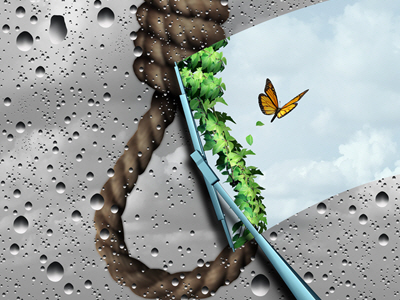
Suicide Awareness and Prevention
If you or someone you love is experiencing thoughts about hurting yourself and need immediate support, please call 1-800-273-8255. If you are a Veteran or you are worried about a Veteran, please press 1. You can also call 911 or proceed to your nearest Emergency Room.
 More than 47,000 people died by suicide in 2017.
More than 47,000 people died by suicide in 2017.
It matters from a mental health and economic stand point. Just ask anyone who has been impacted by the death of a loved one or a co-worker.
Elana Premack Sandler, LCSW, MPH, in her blog post “The Ripple-Effect of Suicide” on the NAMI website states, “Ultimately, in the way that a pond is changed because of a pebble, an entire community can be changed by a suicide.
According to a 2016 study, it is estimated that 115 people are exposed to a single suicide, with one in five reporting that this experience had a devastating impact or caused a major-life disruption.”
Suicide is a public health issue.
We All Need to Educate Ourselves
I went to an all-girl Catholic high school and we had a physical education and health instructor named Mrs. Vecchioni.
It was a rite of passage to stand in front of the class and name the female and male anatomy, using the correct terms in a voice that was audible from the back of the room.
At the dawn of understanding about HIV and AIDS, it made sense to get clear about how the disease is transmitted and how it is not.
It is the same with suicide! Education leads to conversation, and conversation is the first step to prevention.
Connection Makes a Difference
When we do or say something to validate another’s experience, we are working actively to decrease the stigma associated with mental illness, the underlying cause of suicide.
Not talking about suicide or mental illness will not prevent it from impacting your life, in the same way that not talking about sexually transmitted illnesses will not prevent you from being impacted by them.
If we want to understand why denial does not work, we only need to recall how that approach shamed people and made them feel isolated, forcing them to NOT take the necessary steps to mitigate the risks of STDs.
When we learn how to talk with each other about what is most difficult we create the possibility for solving major problems.
 Suicide awareness is about understanding the warning signs and the risk factors.
Suicide awareness is about understanding the warning signs and the risk factors.
Knowledge is empowering and if we are empowered to support one another we can make a difference.
Whether you are a mental health professional, someone who has struggled with suicidal thoughts, or know someone who has struggled, you know that having a plan for how to manage the crisis is half the battle.
Equip yourself to make a positive impact.
With over 26 years of experience as a social worker, including 3 years as a Suicide Prevention Coordinator for the VA, I am available to both professionals seeking guidance and individuals in the community who are looking to expand their knowledge base.
Call me for a free 20-minute consultation! (910) 470-2387
I would love to explore how I can help you start the conversation in your community! You can also reach me through the contact form below.
